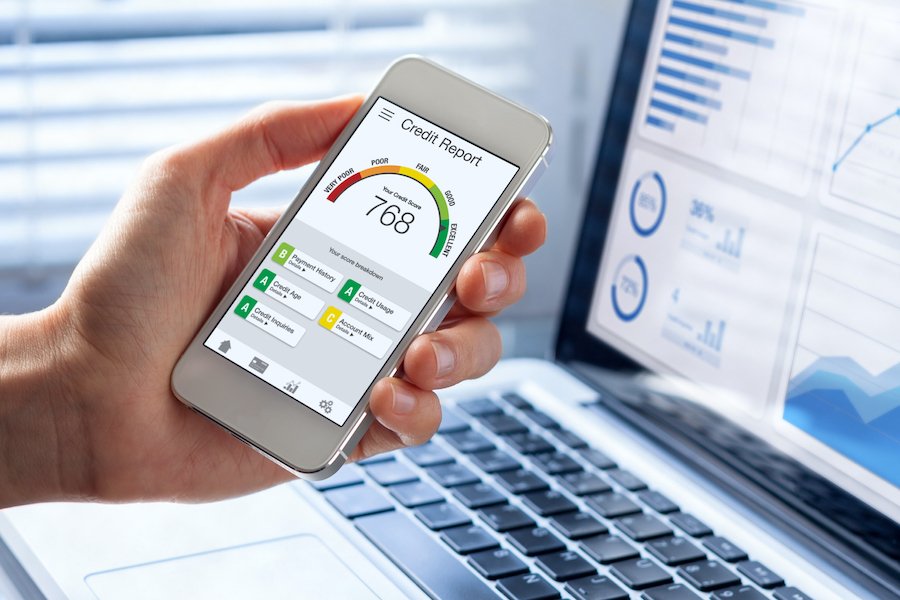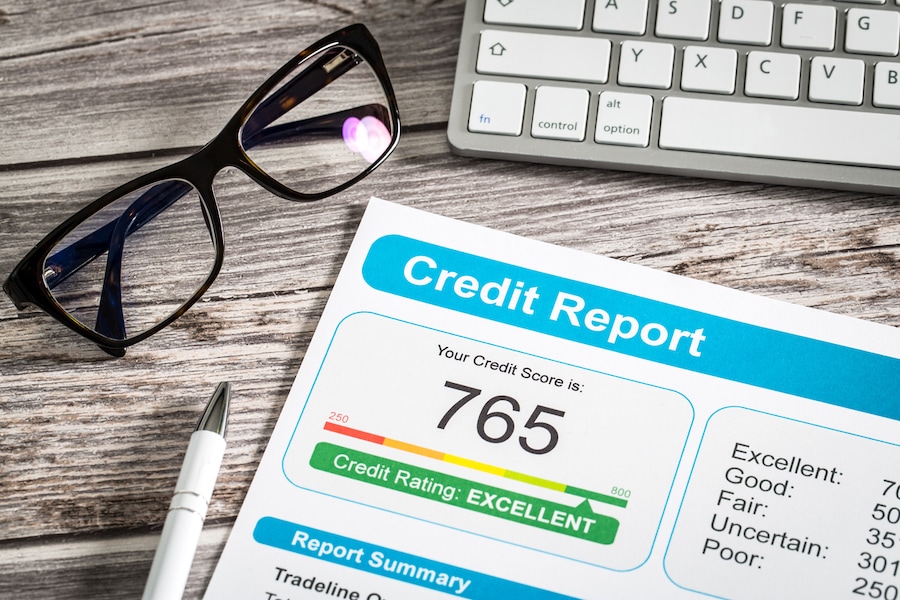
Applying for a mortgage can feel stressful, especially if you don’t know your credit score or if your credit score is low. Your credit score directly impacts the terms of your loan, mortgage interest rates, and whether or not you might qualify.
The great news is you can save thousands of dollars on your mortgage by boosting your credit score. Why? Lenders look at credit scores as an important factor in determining your ability to repay the loan. Lower risk (for the lender) means a better mortgage for you.
Together, a better credit score and low debt-to-income ratio can help you save thousands of dollars on your mortgage.
RELATED: WHY GETTING PREAPPROVED FOR A MORTGAGE IS A SMART STRATEGY
How can I raise my credit score quickly?
A better credit score means a better mortgage. However, if your credit score isn’t where you want it right now, there’s a lot you can do to improve it. Follow the steps below to boost your credit score fast.
- Excellent credit: 740 +
- Good credit: 700 – 739
- Fair credit: 620 – 699
- Not so great: 580 – 619
Smart tips to boost your credit score in less than 60 days
Step 1: Download a free copy of your credit report
Review your credit report for accuracy and look for any errors or negative marks that need your attention. Get a free copy of your credit report here from the Federal Trade Commission.
Step 2: Clean up any errors on your credit report
First, check to confirm that your personal information is correct (name, address, past addresses, etc.) Next, check for collection accounts, late payments, credit inquiries, or anything else that shouldn’t be there. If needed, you can also dispute credit inquiries or negative items that might hurt your credit score. Most errors can be cleared within 30 days.
Step 3: Pay down high credit card balances
The lower your balances are, the higher your credit score will be. Ideally, you want to aim for a balance below 30% of your available credit (also called your credit utilization ratio). This is because lenders consider it a lower risk when a borrower isn’t maxed out on their credit.
Step 4: Catch up on past-due payments
Bringing your accounts current will boost your credit score. If needed, call your creditors to make a payment arrangement so that you bring your accounts current.
Step 5: Keep old accounts open
Payment history can help your credit score. So even if you have old accounts that you haven’t used in years, keeping them open with a zero balance is a smart move.
Step 6: Don’t apply for new credit cards or loans
Each time you apply for a new credit card or loan, it negatively impacts your credit score. So when you’re ready to apply for a mortgage, hold off on buying that car or opening a new line of credit.
Does it hurt my credit score when I apply for a mortgage?
No. When you apply for a mortgage, it shows up on your credit report as a new inquiry, but it doesn’t negatively affect your credit rating for the first 45 days. However, if you apply to multiple lenders beyond the first 45 days, the additional inquiries will begin to affect your credit score.
Should I pay off my loans early to improve my credit score?
In most cases, no. Believe it or not, keeping installment loans open and making your payments on time is the best way to keep your credit score in check.
Should I pay off my credit cards to boost my credit score?
Probably not. The best strategy is to pay down your balances significantly and keep your credit line open with a low balance. If possible, pay down your highest balance credit cards first and push your balance below 30% of the credit line.
High credit score? Leverage your mortgage options.
A high credit score means lenders will compete for your business. Download a free copy of your credit report so you can resolve any errors or misinformation. Keep making your payments on time and don’t take on any new debt or apply for new credit lines.
Now’s not the time to open a new credit card or apply for a new loan. Instead, keep your credit report as clean as possible when you’re ready to apply for a mortgage.
Low credit score? The FHA home loan might be the best fit.
A good credit score will typically get you the lowest mortgage rate. But there are also specialty loan programs available for homebuyers who have a lower credit score. In addition, your credit score isn’t the only factor when it comes to qualifying for a mortgage. Talk to a mortgage expert who understands the big picture and can help you reach your homeownership goals.
RELATED: TOP 5 HOME LOANS FOR FIRST-TIME HOMEBUYERS
Let’s talk about Debt-to-Income Ratios and Credit Scores
When you apply for a mortgage, your debt-to-income ratio impacts your mortgage application right along with your credit score.
Why? Lenders compare your total monthly income with your monthly debt repayments to determine how much you can afford. If your monthly debt payments are higher than 40% of your pre-tax income, it might be harder to qualify for the best rate.
It might be worth it to pay down your debt when it comes to your credit score, so your debt-to-income ratio is favorable.
How to Calculate Debt-to-Income Ratio (DTI)
To calculate your DTI, combine your required monthly payments (e.g., monthly rent or mortgage, minimum credit card payments, student loans, car payments), and subtract the total from your gross monthly income.
For example, if your gross monthly income is $6,000, then 43% would be $2,580. This is the maximum amount a lender would approve for a monthly mortgage payment for a conventional loan. Next, subtract your monthly debt repayments:
Monthly car payment = $200
Credit card payment = $135
Student loan payment = $250
In this scenario, your monthly debt obligation would be $585. From the lender’s perspective, this means you have $1,995 available to make a monthly mortgage payment ($2,580 – $585 = $1,995.)
Note that your new monthly payment will need to cover your mortgage payment, homeowner’s insurance, property taxes, and mortgage insurance if required.
RELATED: HOW DO I QUALIFY FOR A MORTGAGE WITH STUDENT LOAN DEBT?
What Happens with Co-applicants or a Joint Mortgage?
If you want to buy a house with a partner, spouse, friend, or relative, your mortgage application will require a credit report for everyone on the application. We blogged about this recently, which you can check out here: How to apply for a joint mortgage with a friend or relative (their credit score might help you qualify).
Summary
Buying a home or refinancing a mortgage can be a lot less stressful when you know what to expect. Mortgage lenders look at your credit report to evaluate risk and determine if you’ll be able to pay back your loan. Talk to a mortgage advisor (for free) to discuss options that can save you money.
The best way to boost your credit score is to make your payments on time, fix any errors on your credit report, and lower your balance on revolving credit cards.
Find out your credit score and download your free credit report. You can clean up any errors, dispute negative marks, and take action to boost your credit score in less than 60 days.
Next Steps
To get the best mortgage interest rate and terms, work with a local mortgage expert who understands your financial situation. No matter your credit score, we’re dedicated to helping you save money on your mortgage. Financial freedom might be closer than you think.





